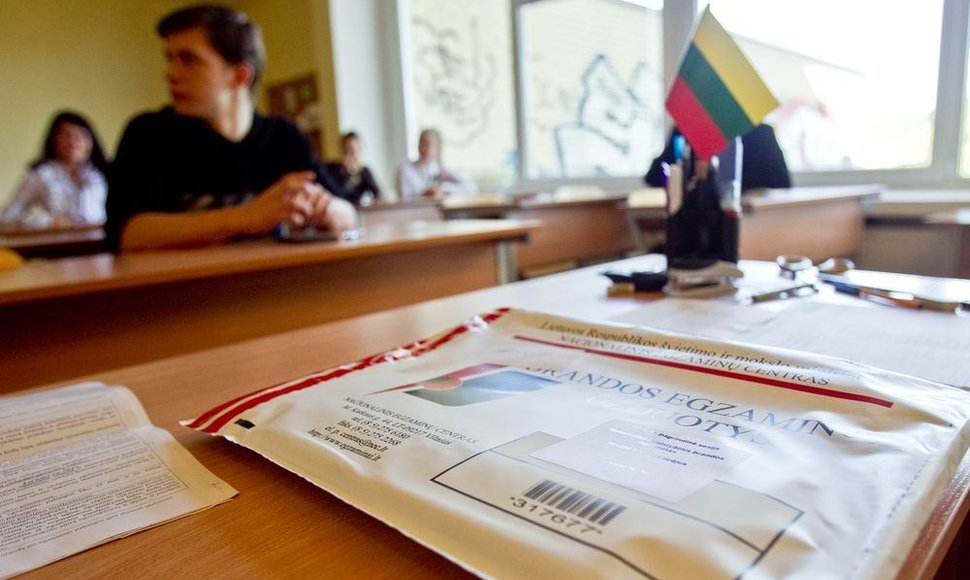"The president draws the minister's attention to the fact that different examination conditions are not favorable not only to Lithuanians but also to ethnic minority children who chose to receive education in Lithuanian schools," Daiva Ulbinaitė, presidential spokeswoman, said after the president's meeting with Minister of Education and Science Dainius Pavalkis.
"Lithuania has always been multiethnic and will remain so. And everyone is Lithuania's citizen, therefore, there cannot be any privileges. There should be equal conditions for everyone, just as the Constitutions says, and it's the president's principled position," Ulbinaitė said.
In her words, the president called on the minister to pay special attention to education of people from eastern Lithuania.
"Citizens from eastern Lithuania cannot be less educated than other Lithuanian citizens. All Lithuanian citizens (...) have to be equally literate, and the Lithuanian language should not become a subject of any negotiations or political agreements," she said.
Meanwhile, Minister Pavalkis said that decision on the Lithuanian language exam might be reviewed after results of this year's exam.
"That decree is signed. I won't be commenting on how much I like or dislike it. But I promised the president to submit the exam results without waiting for any court rulings. I believe we will restrict this order," Pavalkis said.
Earlier this year, Pavalkis signed a decree facilitating the Lithuanian language exam for ethnic minority school graduates. They will be required to submit a shorter essay and will be allowed to make more mistakes.
Representatives of the opposition later appealed against the decree, saying that exceptions run counter to plans for the introduction of a unified Lithuanian language and literature exam, which subsequently runs counter to the provision of the Law on Education, stating that "the evaluation of learning results is organized equally for schoolchildren from schools of all languages."












